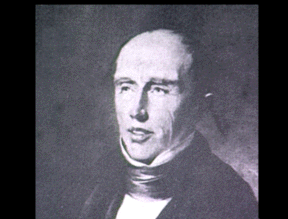![]()

Francis Blair was born in Virginia in 1791, but early moved to Kentucky where his father served as attorney general of the state. Blair was graduated from Transylvania University, studied law, and was admitted to the bar in 1817, but owing to a vocal defect never practiced. Prone to illness in his youth, he turned to farming to improve his health, but he more and more became involved in politics.
During the political furor caused by the Panic of 1819, Blair commenced his long political career. As a leader of the so-called Relief Party, he contributed to newspapers and presided over the state's Commonwealth Bank. Blair was initially a supporter of fellow Kentuckian, Henry Clay, but their divergent political views soon sent Blair into the Jackson ranks. His editorial efforts on behalf of Andrew Jackson before and after the election of 1828 gained him a national reputation, and when Jackson sought a loyal editor for an administration journal, Blair was called to Washington, where he established the Washington Globe in 1830. He remained editor throughout the presidencies of Jackson and Martin Van Buren. However, with the election of James K. Polk, Blair was forced to sell his interest in the paper in 1845.
Retired to his country estate, Silver Spring, Blair remained politically active. In 1848, he supported the Free Soil party in its opposition to the expansion of slavery. Although he returned to the Democratic Party to support Franklin Pierce in 1852, Pierce's actions as President, particularly his support of the Kansas-Nebraska Act disillusioned Blair. He became one of the principal organizers of the Republican Party, and actively participated in the Chicago convention that nominated Lincoln in 1860. Both of Blair's sons were prominent Republicans, and Montgomery Blair was appointed to Lincoln's cabinet.
Following the Civil War, Blair found himself in opposition to the more radical measures of congressional Reconstruction, and he returned to the Democratic Party. He died in 1876, after a long and influential political career.